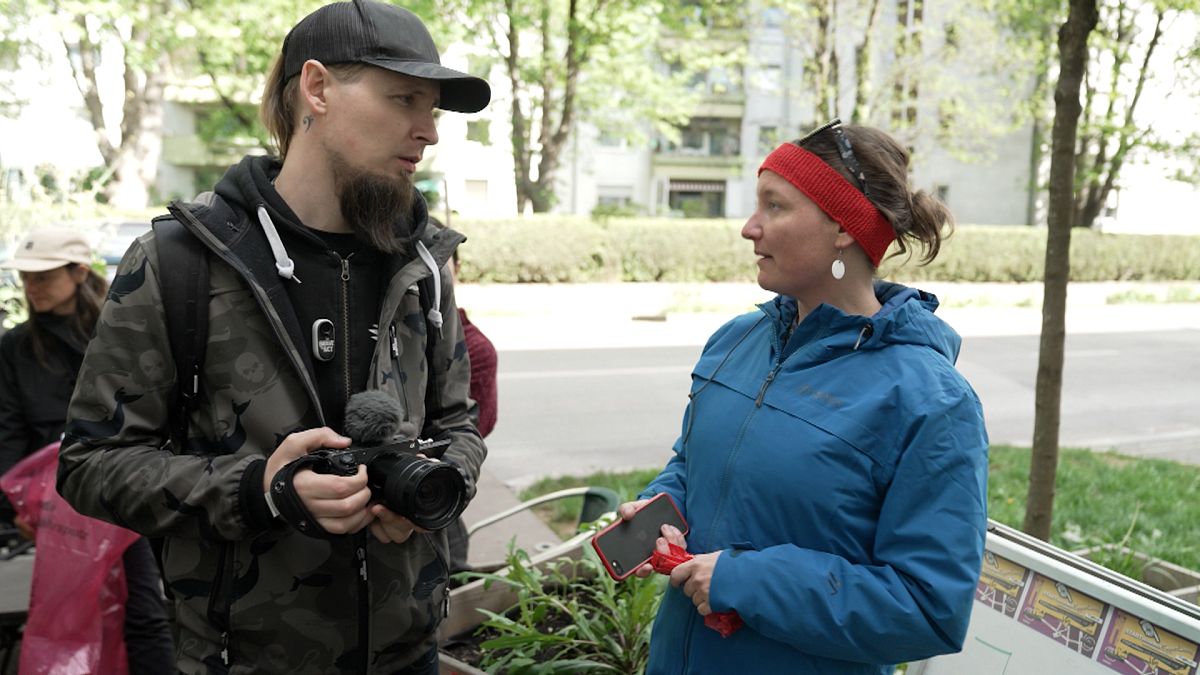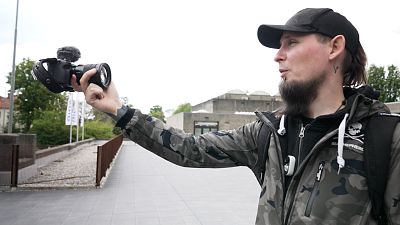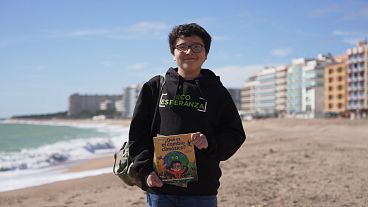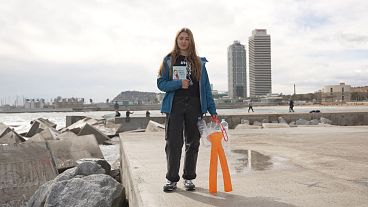In this episode of the Road the Green, Euronews reporter, Cyril Fourneris, travels to Graz, Austria and Berlin to see what everyday people are doing to help the environment.
Most Europeans see climate change as a serious problem but are less aware of how we can slow it down.
Nature is in crisis and an estimated one million species are on the brink of extinction. Biodiversity loss has altered ecosystems around the world and is affecting livelihoods.
The European initiative #ForOurPlanet is trying to inspire civilians to take action and work together to restore and protect natural ecosystems.
The campaign's message is simple: planting trees, restoring wetlands or simply bringing nature into one's home, roof and garden is a positive step, every action counts!
Dima Bass, a European Climate Pact Ambassador, activist and video maker, volunteers for biodiversity protection projects every month and documents his efforts on his YouTube channel.
"I feel that many people want to do something but don't know where to go or what they can do. So I show them that there are so many amazing people and amazing projects all around the world," he told Euronews.
Dima invited Euronews to join him on a trip to Graz, Austria's second-largest city to meet the everyday eco-warriors doing their part for the environment.
Graz's everyday eco-warriors
First on the list was Felix Krainer, the founder of Planet Matters, a popular environmental cleanup movement mobilising school children and locals to pick up plastic waste.
Euronews and Dima joined Felix and several schoolchildren at a clean-up event in one of Graz's many parks.
Plant Matters has more than three million followers on TikTok. Felix explained that the social media platform has helped him to connect with younger audiences and get a positive environmental message across.
"We always try to give the viewer a good feeling when they watch our videos and try to motivate them to go out there themselves and take action," the 23-year-old said.
Dima also invited Euronews to another cleanup organised by EggenLend Community Centre on the outskirts of Graz.
The centre is trying to foster civil engagement through cleanups and promotes food-sharing, cycling and zero-waste initiatives.
"When we come by, people start talking to us and say, 'Oh, I do that too! And I like what you're doing,'" said social worker Anna Reupichler, who volunteers at the centre.
Dima explained that signing up for a local clean-up operation is just as important as volunteering for environmental causes abroad, "Everything is part of the ecosystem, we as humans are part of it. I wish that such people [people doing their part to tackle climate change] were the real rockstars of today".
Greening Berlin's streets
Katharina Kerbstat, another EU Climate Pact Ambassador, based in Berlin, told Euronews what being a climate ambassador is all about: "Getting connected with other people from other European countries to make a change from the bottom and to give some good advice to the politicians too," she said.
"I think we need to hurry a little bit if you see the scientific facts."
Katharina brought Cyril and his team to Fritschestrasse, a residential street in Charlottenburg-Wilmersdorf, on the outskirts of Berlin, where the locals are creating their own green spaces to boost biodiversity.
Jörg Winners, a spokesperson for the Fritschestrasse initiative showed Euronews some benjes or deadwood hedges along the street. They are usually made from cut branches and leaves and provide an excellent breeding ground or shelter for small mammals, birds and insects, including bees.
"Wild bees in cities are very important because they help flowers to reproduce. And it works," said Jörg.
Restoring natural ecosystems
Further west in the Grunewald forest, one of Berlin's biodiversity hotspots, environmental activists are trying to protect the local toad and frog populations which serve as food for many animals in the area.
Some fifty volunteers and schoolchildren take turns every day collecting toads and frogs from behind a fence near a busy road as many of them try to cross it to get to a pond on the other side during mating season and get run over.
"If you have six cars passing an hour, you will extinguish 30 per cent of the toad population. If you have 30 cars, you hit them all. Amphibians are food for many animals and to have a big variety of species, you need to have high numbers of specimens. And so, we are improving the number of specimens, frankly, with all the volunteers," said Dr Karin Drong, an environmental educator from Ökowerk Conservation Centre.
Last year, the association saved 2,500 of them, helping the forest ecosystem to thrive.




